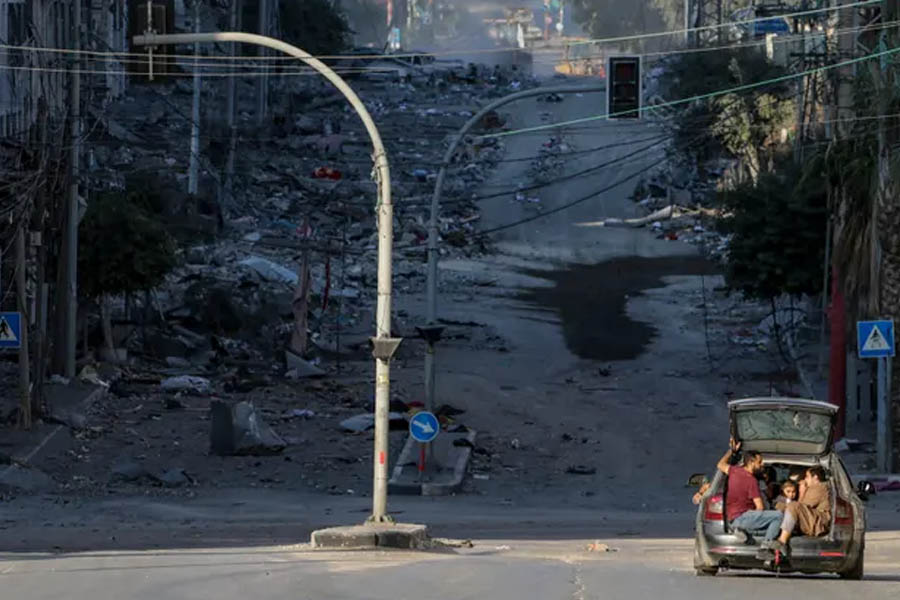
In the ongoing conflict between Israel and Hamas, the United Nations Security Council faces hurdles in voting on the United Arab Emirates' proposal for a ceasefire in Gaza. This marks the third delay in the vote, originally scheduled for Monday, now anticipated on Thursday, as members negotiate the text to avoid potential veto from the United States, which has previously vetoed similar resolutions twice.
Ceasefire Rejected Amidst Hostage Negotiations:
Hamas leader Ismail Haniyeh arrived in Cairo to discuss the conflict with Egyptian officials. Despite Israel's offer to pause fighting for a week in exchange for hostages, Hamas rejected the proposal, stating they wouldn't discuss releasing Israeli captives until a ceasefire is implemented. The negotiations included representatives of Palestinian Islamic Jihad, emphasizing the need for a ceasefire before any talks commence.
International Dynamics and Humanitarian Crisis:
As the conflict persists, the Palestinian death toll in Gaza has surpassed 20,000, according to Gaza's Hamas-run health ministry. The United Nations Security Council considers a resolution led by the United Arab Emirates to allow more humanitarian aid into Gaza and potentially reduce or pause Israel's military operations. The Biden administration urges a change in tactics to limit civilian casualties in Gaza.
Israeli Military Operations and Diplomatic Efforts:
Israeli Prime Minister Benjamin Netanyahu, while emphasizing the military campaign as leverage to recover hostages, faces pressure to shift tactics from Western allies. Israel's recent offer sought the release of 40 hostages in exchange for a week-long pause in ground and air operations, allowing humanitarian aid into Gaza. The rejected proposal highlighted the complex dynamics of the conflict and the challenges in reaching a resolution.
Humanitarian Crisis in Gaza:
Gaza's population of 2.2 million faces dire conditions, with approximately 85% displaced within the enclave, scarcity of food, clean water, and a collapsing healthcare system. Despite aid entering through Egypt, distribution beyond the border town of Rafah remains limited, intensifying the humanitarian crisis.
UN Security Council's Dilemma:
The UN Security Council grapples with finding a resolution that balances the urgent need for humanitarian aid with potential diplomatic consequences. The U.S., holding a veto, supports the resolution's purpose but emphasizes the importance of not hindering humanitarian assistance delivery.
Escalation in Military Operations:
Israel continues its military operations, focusing on Khan Younis, Gaza's second-largest city, where Hamas's military leadership is believed to be hiding. The conflict's toll includes over 300 targets struck in the past day, with face-to-face battles between Israeli forces and Hamas fighters in various Gaza regions.
Search for Hamas Leadership and Escalating Tensions:
Khan Younis has become a focal point in the conflict, prompting Israeli Defense Minister Yoav Gallant to assert continued action until reaching senior Hamas leaders. The smaller number of troops in Khan Younis signals a more focused approach, aiming to dismantle the city's tunnel system and change the dynamics of the conflict.
With mounting challenges in diplomatic efforts and escalating tensions on the ground, the situation in Gaza remains complex. The rejection of a ceasefire amid hostage negotiations underscores the deep-rooted complexities in resolving the conflict, posing significant challenges for international stakeholders seeking a peaceful resolution.